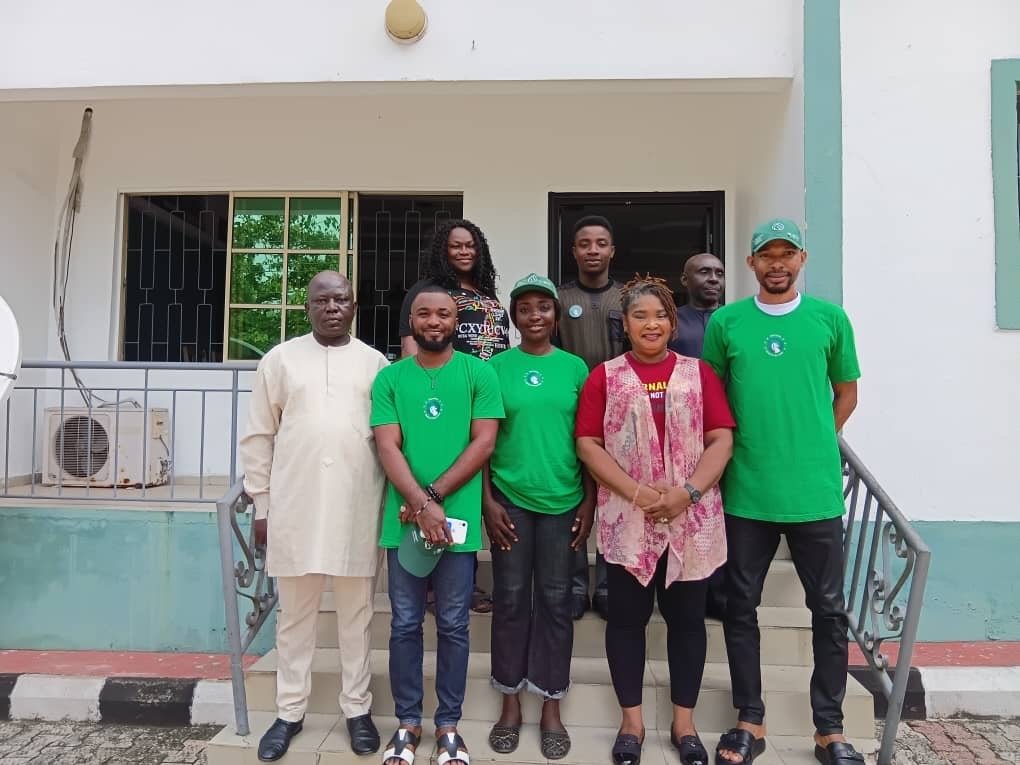By Anietie Akpan
The United Nations Children’s Fund (UNICEF) has raised concerns over the stagnating Nigeria’s breastfeeding rates and declining early initiation, thus amplified its call for urgent and sustained investment in breastfeeding-friendly policies and environments across homes, healthcare systems, workplaces, and communities.
UNICEF raised this concern at a Virtual meeting on Multi Zonal Media Dialogue on key Advocacy Messages on 2025 World Breastfeeding Week (August 1–7) organized by UNICEF Field Office Enugu in Collaboration with Broadcasting Corporation of Abia State (BCA) on August 5, with the theme: “Priotize Breastfeeding: Create Sustainable Support Systems”.
UNICEF, in a presentation by its communication Officer in Enugu, Dr. Ijeoma Onuoha-Ogwe, identified significant challenges facing exclusive breastfeeding saying, “only 36 percent of newborns are breastfed within the first hour of life. Exclusive breastfeeding remains stagnant at 29 percent, unchanged since 2018 while initiation has declined from 42 percent in 2018 to 36 percent in 2023 (NDHS).
Referencing NDHS report, she said babies are weaned off breastmilk too early—well before the recommended two-year mark and “26 out of 30 Nigerian states lack supportive breastfeeding policies, such as paid maternity leave, workplace crèches, and breastfeeding breaks”.
Most workplaces, both formal and informal, lack infrastructure or policies to support working mothers, she said noting that “breastfeeding should not be a privilege—it must be a right supported by systems at every level”.
In her opening remarks, UNICEF Chief of Field in Enugu, Mrs Juliet Chiluwe, urged all sectors, government, employers, health professionals, and families to unite in building systems that support and protect breastfeeding mothers.
She stated that, “breastfeeding is more than a natural act—it is a cornerstone of child survival, growth, and lifelong development. It supports the immune system, enhances brain development, fosters emotional bonding, and reduces maternal and child mortality. Breast milk, being natural and renewable, also contributes to a healthier planet by eliminating packaging waste and pollution”.
According to UNICEF and WHO guidelines of “1-6-24”, one stands for initiating breastfeeding within the first hour of birth, 6represents exclusive breastfeeding for six months, with no water or food while 24 means continued breastfeeding alongside complementary foods up to 24 months or beyond.
However, she said the good news is that, “over 90 percent of Nigerian women have breastfed at some point, showcasing deep-rooted cultural acceptance. Additionally, ten states—including Lagos, Kwara, Ekiti, Oyo, Cross River, Kaduna, Niger, Ondo, Enugu, and Plateau—have extended paid maternity leave to six months for public sector workers, aligning with global best practices”.
Healthcare providers are on the frontlines of promoting and sustaining breastfeeding, yet many are undertrained, overstretched, or under-resourced and she said, UNICEF urges hospitals and clinics to “initiate breastfeeding within one hour after delivery, encourage exclusive breastfeeding for the first six months—no water, no substitutes.
“Provide continuous support through antenatal care, delivery, and postnatal periods”.
UNICEF according to her, emphasized that working mothers can breastfeed successfully—but only with adequate support, hence employers are urged to “provide flexible work arrangements, such as remote work or part-time schedules”.
“Offer extended maternity leave (ideally six months), establish breastfeeding corners or lactation rooms within office premises, promote workplace breastfeeding policies, including nursing breaks”.
In addition, staff unions and colleagues are urged to play a vital role in protecting breastfeeding rights by advocating for parental leave, offering emotional support, and defending mothers’ dignity at work.
The meeting charged government and employers to expand maternity protections and breastfeeding infrastructure across all states.
“Integrate breastfeeding support into national healthcare and labor policies. Promote breastfeeding as a cost-effective public health measure”.
For the Healthcare Workers, the meeting charged them to Prioritize breastfeeding counseling during antenatal and postnatal visits, combat harmful myths and misinformation, educate families on the irreplaceable benefits of breastmilk.
For UNICEF Champions, Influencers, and the Public, the meeting urged them to speak up against misleading baby formula marketing and challenged the “Fed is Best” narrative with scientific facts maintaining that “breast milk is best for the first six months and promoting breastfeeding as a shared responsibility, is not just a mother’s burden”.
UNICEF charged relevant stakeholders and mothers “to invest in breastfeeding today to build a healthier, smarter and more resilient generation”.
UNICEF reminded Nigeria and the world that supporting breastfeeding is not “optional—it is essential. Breastfeeding must be protected, promoted, and supported at every level of society. When we invest in mothers, we invest in the nation’s future”.
In his opening remarks, the Director General, General, BCA, Francis Nwubani, said, “it a time to recognize breastfeeding as a powerful foundation for lifelong health, development, and equity.
He said the World Breastfeeding Week shines a particular spotlight on the ongoing support women and babies need from the healthcare system through their breastfeeding journey.
“This means ensuring every mother has access to the support and information she needs to breastfeed as long as she wishes to do so – by investing in skilled breastfeeding counselling, enforcing the International Code of Marketing of Breast-milk Substitutes, and creating environments—at home, in healthcare, and at work—that support and empower women”, he said.
However, he said breastfeeding can be challenging when parents are not fully supported even though “breastfeeding delivers a hopeful future not only for children, but for societies. It reduces healthcare costs, boosts cognitive development, strengthens economies, and sets children up with healthy beginnings”.
As we mark the World Breastfeeding Week, Nwubani stated that the WHO and UNICEF are calling on governments, health administrators, and partners to invest in high-quality breastfeeding support in so many ways especially by ensuring that all health service providers are equipped with the skills and knowledge required to support breastfeeding, including in emergency and humanitarian settings.
He said it is indisputable that all the information about breastfeeding cannot be well disseminated without the media, hence the media is charged to play a key role in this agenda of informing the public about breastfeeding.











